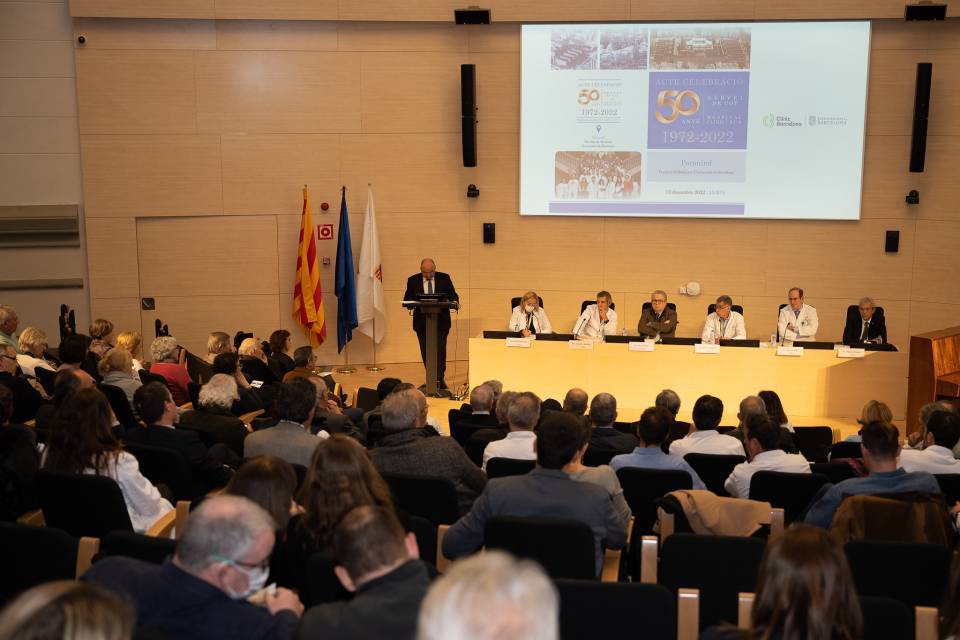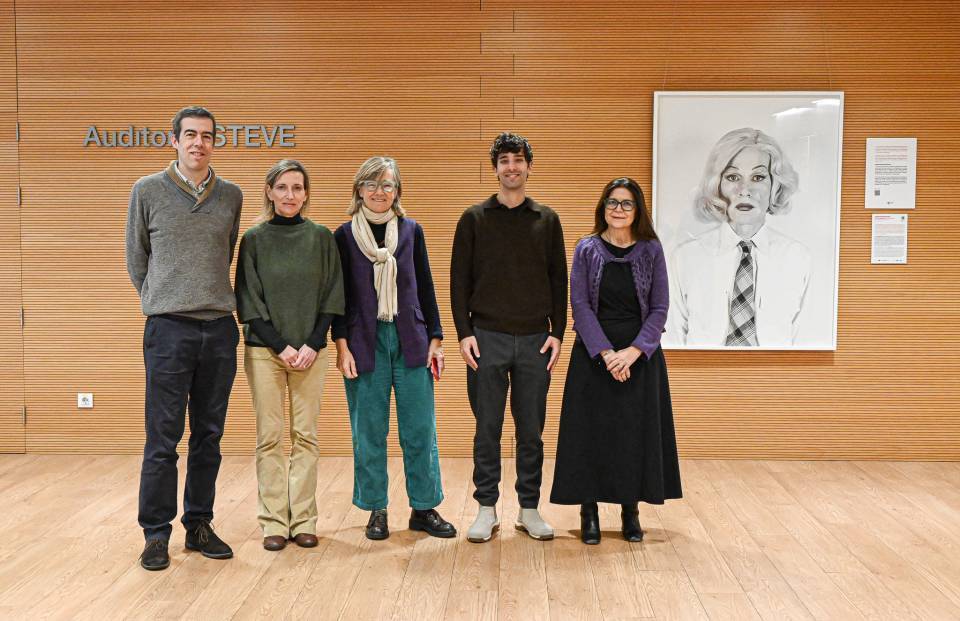The Orthopaedic Surgery and Traumatology Service at the Hospital Clínic Barcelona celebrated its 50th anniversary this Thursday. The event was chaired by Dr. Josep Maria Campistol, Director General, Dr. Antoni Castells, Medical Director and Gemma Martínez, Nursing Director. The Service is headed by Dr. Pere Torner and forms part of the Hospital Clínic Medical and Surgical Specialties Institute led by Dr. Josep Maria Segur. The event was also attended by Dr. Jaume Padrós, President of the Barcelona College of Physicians, and Dr. Francesc Pallissó, President of the Catalan Society of Orthopaedic Surgery and Traumatology.
The Orthopaedic Surgery and Traumatology Service treats anomalies of congenital, tumoral or degenerative origin of the musculoskeletal system, as well as injuries of traumatic origin. The Service carries out 38,000 outpatient visits each year, and provides 4,000 discharges.
Leaders in robotic surgery
The Hospital Clínic Barcelona is the only public centre in Catalonia that carries out robotic knee replacement surgeries. In December 2021, these new surgeries began to be performed with the robotic surgical assistant, ROSA, developed by Zimmer Biomet. In total, 200 robotic surgeries have been performed. Moreover, the Hospital Clínic Orthopaedic Surgery and Traumatology Service (COT Service) is a pioneer in outpatient total hip replacement surgeries, in complex hip and knee replacements, and is the CSUR referral centre for musculoskeletal sepsis.
The COT Service, made up of 48 specialists and 15 residents, is divided into four sections: the Traumatology Section; the Knee Section; the Hip Section; and the Upper Limb - Arthroscopy Section. At the same time, it leads several research projects through the August Pi i Sunyer Biomedical Research Institute (IDIBAPS) and takes part in several teaching and training activities. One the one hand, it teaches medical students at the Faculty of Medicine and Health Sciences (UB). On the other, 15 MIR residents carry out their five-year specialized training at the Service and an important part of the daily activity revolves around their training. The Service also offers internships and international fellowship programmes, which allow foreign specialists to complete their training at the Service.




